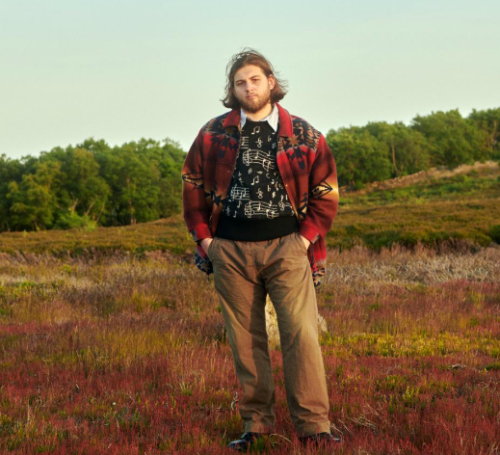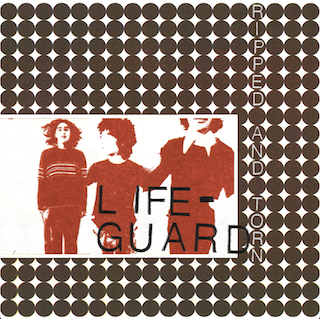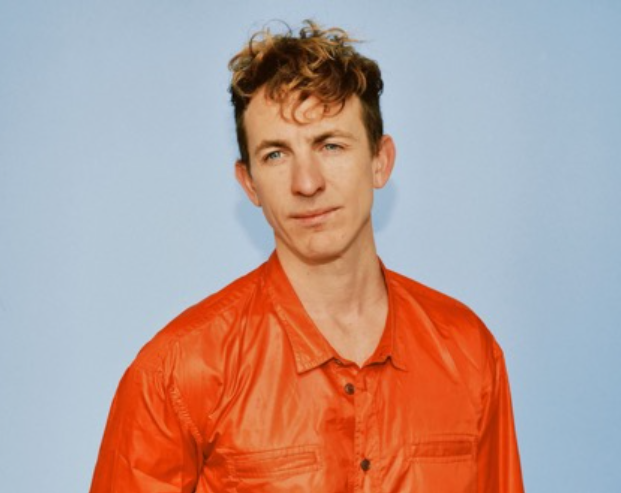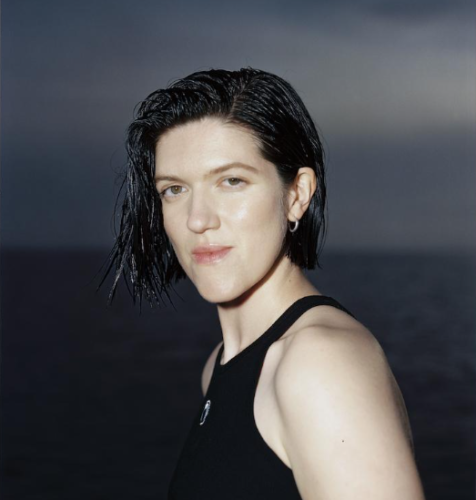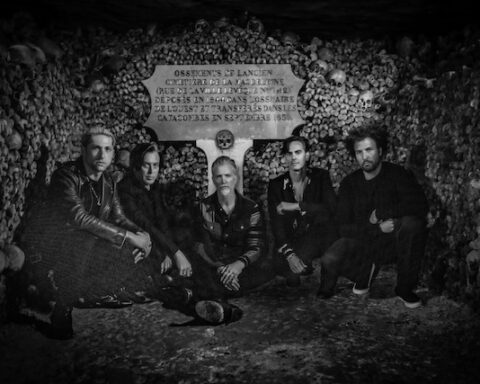“Ethan P. Flynn moves in his own lane, blending surreal lyricism with an emotional heft that can’t be easily shrugged off.” – CLASH
“There’s no one out there doing it quite like Flynn.” – DAZED
“an appealingly wayward and unboxable talent” – Sunday Times
“Songs and ideas pour out of the prolific Yorkshire musician” – The FACE Magazine
Ethan P. Flynn returns with ‘Bad Weather‘, the second single to be revealed for his forthcoming debut album Abandon All Hope, out Friday 6 October via Young Recordings. ‘Bad Weather’ is a perfect storm of stripped–back fingerpicked guitar and Ethan’s idiosyncratic voice. Listen here.
Speaking on the track, Ethan P. Flynn says “The meaning of “Bad Weather” lies in the lyric “Don’t let the bad weather outlive you” – it’s one of the more positive songs on the album and really an encouraging message that any negative feelings of hopelessness are just transitional. The song features a sample from “Vegas Residency”, a track from my Universal Deluge EP, and is a nice reminder of how important that project was in my own journey to making this album.”
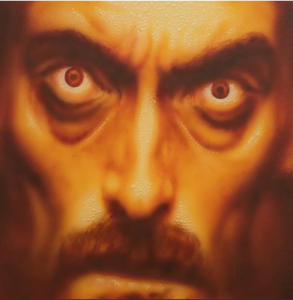
Abandon All Hope is a series of enriching tales that explore feelings of longing and losing power to hope in situations of relationships, love, navigating anxiety, and the coming of age in the 21st century. The eight–track record recalls classic songwriters like Neil Young, Randy Newman, Elliott Smith, and Harry Nilsson, resulting in an album we must all hear.
Young
6 October 2023
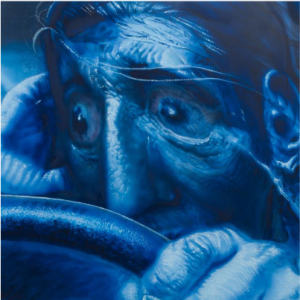
1. In Silence
2. Abandon All Hope
3. Clutching Your Pearls
4. No Shadow
5. Leaving The Boys Behind
6. Bad Weather
7. Crude Oil
8. Demolition
Ethan P. Flynn was less than a year into an electronic music degree at London’s Guildhall when things started happening.
Production and songwriting credits on records by David Byrne and FKA twigs, a record deal, talk of the unique style, rooted in songwriting traditions yet reflecting the culture around him, which Flynn was forging. He was only 19 when he found himself at the vanguard of a new movement in British music with friends from his year going on to release seminal albums. Five years later he completed his classic debut album: Abandon All Hope.
“When I was eight I moved from Welwyn, near London, to a place near Menwith Hill just outside the Yorkshire Dales,” says Flynn in an oddly transatlantic accent, on how his unusual worldview was formed. “It was weird because it was a surveillance base for the US Army so most of the people at my school were kids of people who worked there. Living so close to a full–blown military complex meant that I absorbed a lot of things other people don’t see in everyday life. It also influenced the way I talk and sing. I had an hour’s bus ride to secondary school in Harrogate, during which I never took off my headphones, and on top of that I didn’t have a lot of friends. My parents were going to get me a games console for Christmas but my mum wasn’t really sold on the idea, so when I said I wanted an electric guitar, my parents sold the Xbox which they’d secretly got me, and found me a cheap electric guitar. I only found out about it 10 years later. In another world, I could’ve been a pro gamer instead of a singer–songwriter”
So begins the story of Abandon All Hope, which pours in 24 years’ worth of experience into songs that recall 70s greats like Neil Young, Randy Newman, and Harry Nilsson while dealing with coming of age and feelings of losing the power to hope in relationships, love, navigating the age of anxiety and aspects of life in the 21st century. All delivered with an emotional intensity that’s rare in an age when the feeling that all has been said and done draws us toward postmodern, ironic detachment.
“My generation is the first to have pre–installed programs like GarageBand. I was 11 and stumbled upon it, I played guitar, added some out–of–time drums, and put on my high–pitched vocals. I had a string of seriously good teachers including my saxophone teacher, Ian Peak, who ironically fell off a mountain a few months after I left home. From the age of 6, my mum was taking me to gigs like Yo La Tengo and The Flaming Lips and showing me cool music like Sparklehorse.”
In 2017 Flynn had started at Guildhall when he fell in with a collective called TTY that came to the attention of Young Recordings. An offer came to work on David Byrne’s Everybody’s Coming To My House, on spec — and remarkably, Byrne went for it. Flynn dropped out and his career began. “The middle section on that song is my production, my chords, and I played saxophone. The credit was: keyboards. It is fine, I like David Byrne, but it was a lesson in how it works.”
He also learned the process of being a songwriter for hire. He did a bunch of sessions with Florence + The Machine, which didn’t come to anything, and some with FKA twigs, which did. “twigs is a brilliant person with a lot of great ideas, so I just added the chords.” He also wrote and produced music for the TV series MOOD, which went on to win a BAFTA for Best Original Music.
There are shades of Neil Young’s lyrical approach, direct yet mysterious, in Flynn’s writing. Take In Silence, a power ballad with a broken, emotional quality not a million miles from Nilsson’s Without You, which opens the album. “With good enough eyes on a good enough day, I can see you far away,” he sings, which could be a breakup song, or it could be about someone who has died or both.
“Every love song is about three things to me,” he explains. “It is about relationships, grief, and change in general. In Silence is about changing relationships, the disconnect between the listener and the artist, and the people I’ve known who have died. It is one of my favourite songs I have ever written.”
‘I’m trying to save your life’ is a line from the title track to Abandon All Hope that sticks out. “It started as a story about a highwayman in America, going around robbing people,” says Flynn. “He dies, and in purgatory he is forced to repeat the act of robbing his own family, on the road, for all time, until he repents and goes to Hell. The song is obscured and left with the theme of hopelessness. We’re in a hopeless time: war in Europe, Covid before that, and I wanted it to sound heavy as a response. Maybe it’s too rocking, but I was coming back to guitars on this album. The guitar is the focus.”
Flynn wrote Clutching Your Pearls on a mandola, a lower–tuned version of the mandolin, and reflected on the need to let go of things in life. “Letting go is a strong aspect of this album. I was failing at perfectionism before, trying to sound chaotic while actually being very controlled. This time I was in the studio, playing, not trying to make things perfect. That’s not what I’m meant for.”
The album benefits from the vocals of Ava Gore, Flynn’s girlfriend, who has the kind of pure–toned voice, free of vibrato and on the note, which is more commonly associated with the folk world. She sings on No Shadow, a fingerpicked guitar tune and one of the most delicate songs on the album. “It’s about being the villain, when you feel you can’t do anything right. I think a lot of us can relate to that.”
Not that Flynn is in the habit of taking himself too seriously. “My faith lies in tatters and I’m getting fatter,” he moans on Leaving The Boys Behind, a lament on not having a bunch of friends to fall back on, a gang to call your own. “There seems to be a lot of people who still have their old school friends throughout their life, and not having that is definitely a disadvantage. When I moved from Yorkshire I didn’t know anyone in London, and the song is a load of unrelated lines about that over country music. It was exciting to be at the Guildhall, I met so many people I still work with today, but you never get such a strong bond as the one with your school friends.”
Crude Oil is, says Flynn, a microcosm of the entire album. “It is about persecution. Being an artist, being someone who spends time alone, it is hard not to have feelings of paranoia. You need a delusion of grandeur to make anything in the first place, and that feeds into it. Crude Oil also has a guitar solo… the only one on the album.”
Even getting a record deal aged 18, surely everyone’s dream, proved alienating. When Flynn left the Guildhall he had made enough money to rent a one–bedroom flat in Dalston, on his own, without anyone telling him what to do. That meant he faced the challenge of filling each day of his own accord. “That’s when I really became a songwriter, because I was so isolated. I left uni to work on music, but what do you do all day? I was making music, writing thousands of songs, hanging out with people, walking around, going to art exhibitions and watching old films, but it was a strange period. For a long time it felt like I had made the wrong choice.”
Out of it all has come Abandon All Hope: 44 minutes long, 22 minutes on each side (intentionally to be the traditional length of a 12” LP), recorded at Narcissus Studios in 12 days and bound together by a unifying theme; an album in the old fashioned sense. Now Ethan P. Flynn is entering a new stage in his life. He lives on Golden Lane estate, near the Barbican, an optimistic beacon of post war architecture that fits into his current mindset of going beyond the confines of music to be inspired in a totally different way.
“You catch the idea and everything else is in service to that. If you can keep the idea locked in, the art will work,” he concludes. “I’m doing a lot of other things now, but this is my songwriter album. It feels like an album I had to make and I said what I was trying to say.” The result is an album the rest of us have to hear
